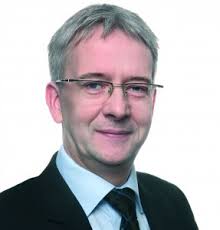Bakkafrost upbeat despite higher costs

INCREASED costs involved in dealing with a high number of fish deaths from poisonous algae in September and lower salmon prices during the summer have impacted on Bakkafrost’s 2018 third quarter results.
The Faroe Islands’ largest salmon farming company today announced mixed results, with a total third quarter EBIT (earnings before interest and tax) of 434.2 million Danish kroners (almost £51 million), a rise of 182 million kroners (£21 million) on the same period last year.
But harvested volumes were well down, from 11,600 tonnes gutted weight 12 months ago to 7,200 tonnes this year.
And the operating EBIT for the combined farming and VAP segments of the business fell from DKK 212.2 million (£25 million) in Q3 2017 to DKK 142.4 million (£16.6 million).
CEO Regin Jacobsen said: ‘The activity in the third quarter this year has been somewhat lower, compared to the same quarter last year.
‘The quarter has also been affected by the elevated mortality level at farming site A-81 Kolbanagjógv in September (when 750,000 fish died), which resulted in higher costs and a negative effect on next year’s harvest volumes.
‘Despite challenges and a decreasing salmon price in the quarter, the operational result for the group was DKK 168 million for the quarter.
‘The new harvest factory in Vágur, Suðuroy, was delayed in start-up, compared to the timetable, but we now look forward to seeing how the increased activity in Suðuroy will be, after the harvest factory started operation in October.’
The guidance for the total harvest in 2018 has been reduced by 3,000 tonnes, from 49,000 to 46,000 tonnes gutted weight.
The FOF segment (fishmeal, oil and feed) made an EBITDA of DKK 41.4 million (DKK 79.5 million) for Q3 2018, and the EBITDA margin was 11.7 per cent (23.2 per cent).
Looking ahead, Bakkafrost said the latest estimate from Kontali Analysis on the global supply of Atlantic salmon in Q3 2018 is an increase of around five per cent compared to Q3 2017.
The global harvest of Atlantic salmon in Q4 2018 is expected to increase by 1.4 per cent, compared to Q4 2017.
The estimated global supply of Atlantic salmon for 2018 is an increase of around seven per cent compared to 2017.
‘The supply of Atlantic salmon will be tight next year, as the global supply in 2019 is estimated to increase around four per cent, compared to estimated supply in 2018,’ said the company.
‘The outlook for the farming segment is good. The estimates for harvest volumes and smolt releases are dependent on the biological development.’
Picture: Bakkafrost CEO Regin Jacobsen

